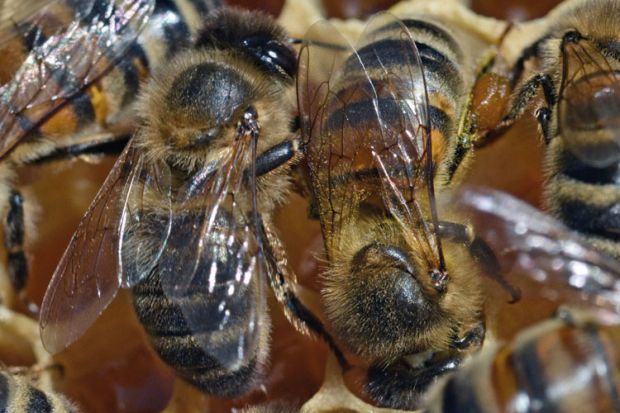A report on European research in the social sciences and humanities suggests “a strong desire to collaborate more on an international level”, including pan-European projects, while highlighting the challenges that researchers need to address.
Commissioned by the Union of German Academies of Sciences and Humanities in cooperation with the federation of All European Academies, Camilla Leathem and Dominik Adrian’s Survey and Analysis of Basic Social Science and Humanities Research at the Science Academies and Related Research Organisations of Europe looked at more than 600 projects from 31 European countries.
Separate chapters explore themes such as opportunities for early-stage researchers, publishing and archiving behaviour, and form and frequency of evaluation. The report also examines the scale of international collaboration, whether researchers are seeking to do more in this field and the perceived obstacles in achieving this.
While the authors note that just over half the projects are already “engaged in official international research collaborations” and that “respondents’ desire to increase collaborative efforts on an international level is unequivocal”, a number of “hindrances” slow down “the rate of collaboration”.
A key issue is one of “visibility”. Although there are obviously also financial and structural factors, promising collaborations are “often hindered by [researchers’] lack of knowledge of similar or related projects in other countries”, the report says. It is useful, for example, not only to send out press releases but also to “actively inform other research organisations about [one’s] work”, the report adds. In addition to the standard academic routes such as conferences and workshops, researchers should adopt the web as “a key dissemination channel”. There is also scope for making much more effective use of “informal contact between researchers and/or projects”, the report says.
Collaboration between different national academies and research teams has enormous potential for shedding light on pan-European problems through the pooling of digital resources, the report argues. Yet while this depends crucially on the compatibility of databases, the report indicates that “there do not seem to be many commonalities [of formats] among those used [by those taking part in the projects surveyed]. Aside from regular office tools like text-editing tools, neither the same programs nor hardware are mentioned with any significant frequency.”
The report continues that there is “a tension between needs and practice: on the one hand, the major needs of researchers concern open access to data of all kinds. On the other hand, databases do not seem to be constructed with a mind to compatibility and therewith interlinkability and comparability.”
Although long-term solutions can be developed only at national and even pan-European levels, lead author and project coordinator Camilla Leathem nonetheless urged researchers to think carefully about open access and Creative Commons options. They should also “try to inform themselves about existing research tools, data-management systems and online repositories before coming up with their own self-designed solutions,” she said.
“There’s so much available out there, but researchers often don’t know where to look or even that there’s somewhere to look,” she continued. “Go to digital resources for social sciences datasets and see what’s being used. Then it’s likely the datasets will be compatible with as many other datasets as possible.”
Appointments
Michael Akeroyd is the new director of the Medical Research Council’s Institute of Hearing Research at the University of Nottingham. He was formerly director of the MRC/Chief Scientist Office’s IHR Scottish Section.
The University of Lincoln has appointed Matthew Goddard to the evolution and ecology research group in its School of Life Sciences.
Susan Watts, an award-winning science journalist, has been made the first head of public engagement and communications at the MRC’s Clinical Sciences Centre, part of Imperial College London’s Faculty of Medicine.
Jan Dewing is Queen Margaret University’s new nursing professor, having taken up the Sue Pembrey Chair in nursing in April.
The University of Liverpool has appointed Gavin Brown its pro vice-chancellor for education. Dr Brown joins from the University of Lancaster.
Nolan Smith has been made director of finance at the Higher Education Funding Council for England. Mr Smith was previously head of finance and investment.
The University of the Highlands and Islands has awarded a professorship to Jun Wei for his contribution to the university’s division of health research. Professor Wei has been instrumental in developing research collaborations with other institutions in Scotland and China.
POSTSCRIPT:
Article originally published as: Joining up Europe’s great storehouses of knowledge (4 June 2015)
Register to continue
Why register?
- Registration is free and only takes a moment
- Once registered, you can read 3 articles a month
- Sign up for our newsletter
Subscribe
Or subscribe for unlimited access to:
- Unlimited access to news, views, insights & reviews
- Digital editions
- Digital access to THE’s university and college rankings analysis
Already registered or a current subscriber?




